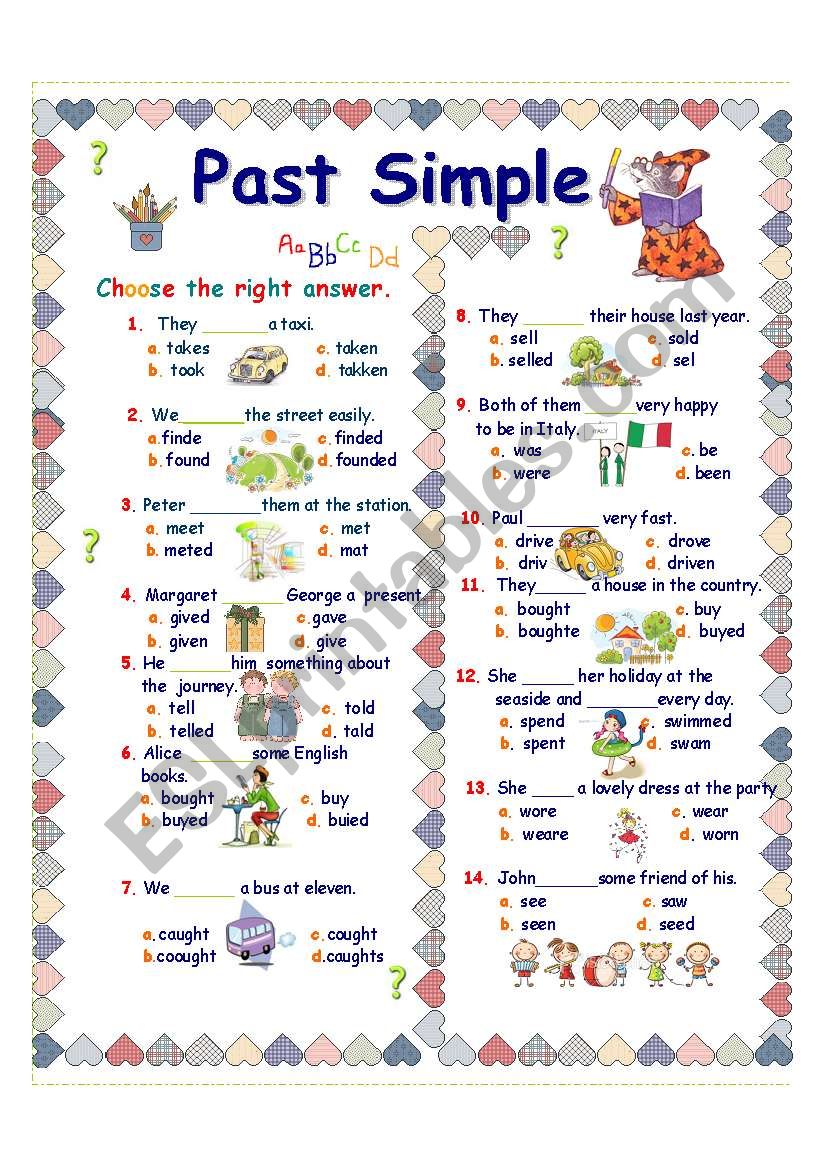
Prelinguistic predictors of language outcome at 3 years of age. Rules or connections in past-tense inflections: what does the evidence rule out? Trends Cogn Sci. ), and it is, therefore, evolutionary ( 2 2. Factors accounting for the ability of children with SLI to learn agreement morphemes in intervention. Pawloska M, Leonard LB, Camarata SM, Brown B, Camarata MN. Language development maturation entails the development of a child's ability to process increasingly complex information ( 1 1. Linguagem infantil Desenvolvimento da linguagem Fonoaudiologia Comunicação Criança Aos 5 e 6 anos as crianças já dominam a habilidade de flexão do verbo no passado e não se diferenciam. Nessa idade, observamos erros de modificação do tempo verbal. Os sujeitos de 4 anos em DNL tiveram desempenho inferior aos demais, pois ainda estão aprimorando o uso de verbos em suas produções. Aos 4 anos, as crianças acertaram mais verbos regulares do que irregulares. Os erros de generalização de regra não diferiram entre os grupos etários.

Aos 4 anos, observaram-se mais erros de modificação do tempo verbal. Não houve diferença entre a quantidade de substituição em função da idade. Resultados:Īs crianças de 4 anos em DNL tiveram desempenho inferior às crianças de 5 e 6 anos para acertos e a pontuação total. A análise das respostas considerou os acertos, as substituições, as generalizações e as respostas incorretas. Para avaliar o uso dos verbos no passado, foi desenvolvido um teste composto por 30 verbos regulares e irregulares. Métodos:įoram sujeitos 30 crianças em DNL, com idades entre 4 e 6 anos. Verificar a habilidade gramatical de flexão de tempo verbal no passado em crianças em desenvolvimento normal de linguagem (DNL). The 5 and 6 years old children already master the skill of past tense and do not differenciate.Ĭhild language Language development Speech, language and hearing sciences Communication ChildĪ aquisição da flexão de tempo verbal é um processo gradual, realizado inicialmente sem conhecimento de significado e regra que diferencia as formas. At this age, we observed tense inflection errors. The 4 years old children with NLD had worse performance than 5 and 6 years old children, because they are still improving the use of verbs in their productions. By the age of 4, children had more regular than irregular verbs correct answers.

The overregularization errors did not differ between age groups.


By the age of 4, we observed more tense inflection errors. There was no difference between the numbers of replacement based on age. The 4 years old children with NLD had worse performance than the children of 5 and 6 years in correct answers and total score. The analysis of the answers considered the correct ones, the replacement, overregularization and errors. To evaluate the use of past tense, we developed a test composed of 30 regular and irregular verbs. The subjects were 30 children with NLD, aged between 4 and 6 years. To investigate the ability of past tense in children with normal language development (NLD). The acquisition of tense inflection is a gradual process, and the children appear unaware of the significance of inflectional endings, without recognizing that there is a general rule for deriving one form from another.


 0 kommentar(er)
0 kommentar(er)
